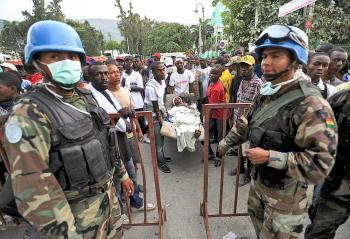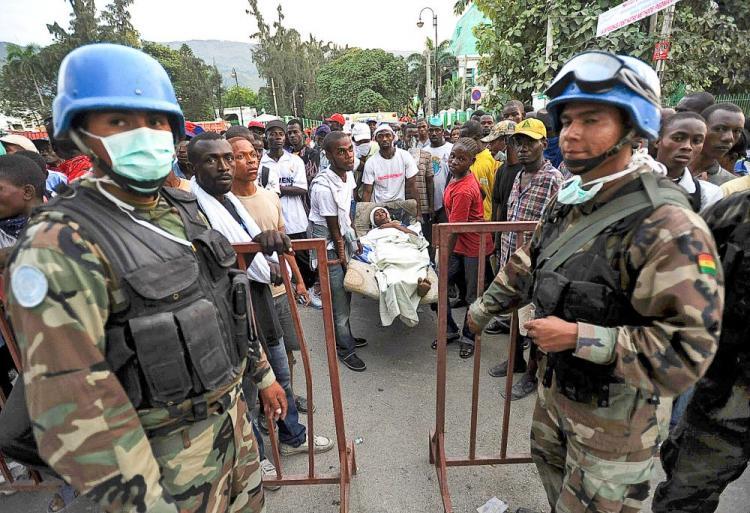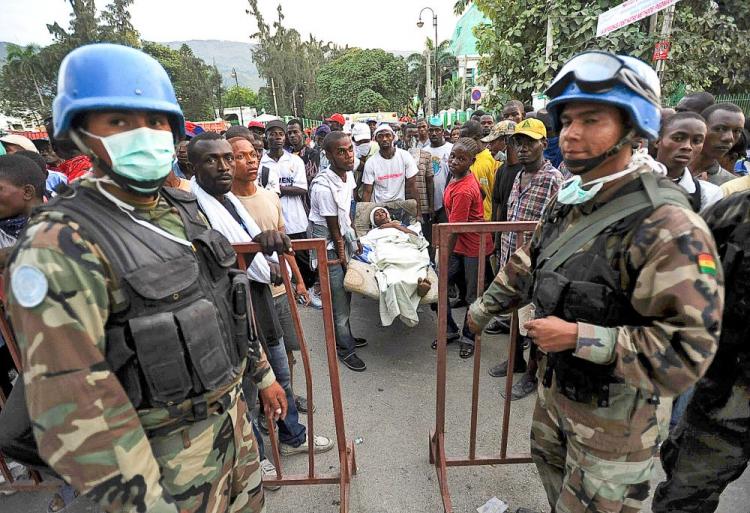Aid is starting to trickle into the country. The Haitian Red Cross estimated on Thursday that 45,000 - 50,000 people have died. Three million people have been affected by the disaster.
“Many bodies [are] on the streets—a lot of injured just lying around, houses destroyed, very new and lush buildings just collapsed. The situation is very dire,” said U.N. Humanitarian coordinator in Haiti, Kim Bolduc, in a videoconference press briefing.
Medical services remain scarce after the three main hospitals in Haiti’s capital, Port-au-Prince, were destroyed in the quake. The World Health Organization (WHO) said eight hospitals were damaged or destroyed in Haiti and two were damaged in neighboring Dominican Republic. Clinics in tents set up by Medicine Sans Frontiers (MSF) have replaced medical facilities in Port-au-Prince.
“People are all in a state of shock. They’re not really talking. They are just gathering and sitting together, just waiting for something to happen and fearing aftershocks,” said Bolduc.
Aid started to arrive in the country on Wednesday but has yet to reach Port-au-Prince. Many water, food, and electricity facilities were destroyed by the earthquake.
“Money is worth nothing right now. Water is the currency,” a foreign aid-worker told Reuters news agency.
So far, over a dozen countries have offered assistance. “We think that there are search-and-rescue assets en route to Haiti from France and the United Kingdom,” said U.S. State Department spokesman Philip Crowley.
“Immediately we’re focused on ensuring their safety and security, finding them, getting them out of buildings that may have collapsed, ensuring that they have food and water,” said White House Press Secretary Robert Gibbs in a press conference on Thursday.
Thousands of people slept on the streets, traumatized and fearful of entering structurally compromised houses. “There are hundreds of thousands of people who are sleeping in the streets because they are homeless,” said a MSF coordinator in Haiti, Hans van Dillen, in a press release.
Security Concerns
There have been some reports of looting in Port-au-Prince. “One of the problems is that the national Haitian police are not visible at all—they’ve simply vanished,” said David Wimhurst, United Nations Communications director in Haiti.
The ability of humanitarian organizations to meet people’s basic needs is limited, said Wimhurst. He warned that potential anger among the Haitian population is rising.
“They expect us to provide them with help, which is of course what we want to do but we’re not in a situation yet where we can do that on a massive scale,“ said Wimhurst. ”Unfortunately, they’re slowly getting more angry.”
Prisoners escaped after the main prison building in the city collapsed, raising concerns among Haitians. “I have heard that all the prisoners of the main prison in Port-au-Prince just escaped,” said Jean-Sebastien Riche, the vice-consul for trade at the Haitian consulate in New York said on Wednesday.
A U.N. force of 3,000 peacekeepers in Port-au-Prince have been given the task of patrolling the city, securing main facilities at the airport, securing the port, and securing U.N. buildings.
“Based on the devastation that’s happened to the U.N. and certainly that’s happened in Haiti, I think the international community is likely to have to contribute to a security force and a stabilization effort,” said Gibbs at the White House.







Friends Read Free